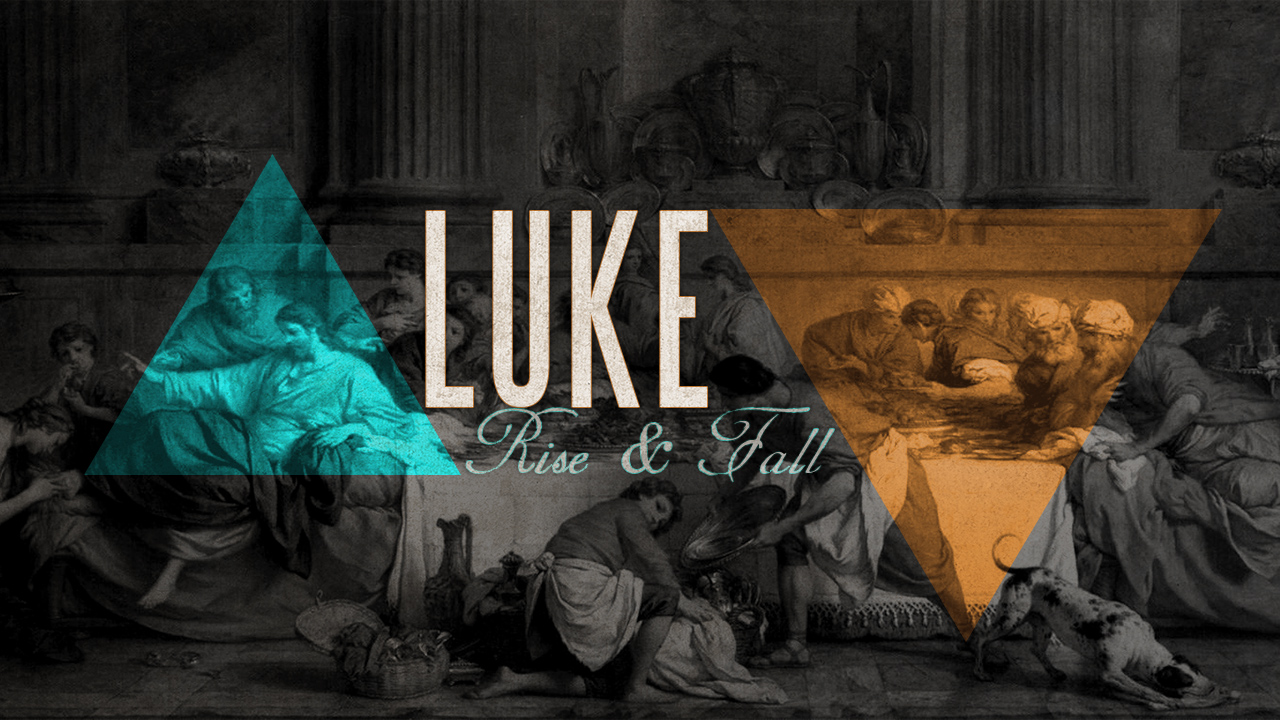
03 Dec Sermon Recap | Luke: Rise & Fall | Kingdom Come: Who is This?
This past weekend, Scott Mozingo taught from Luke 8:22-25, discussing one of Jesus’ displays of great power over nature and the truth it reveals about Him.
The passage begins with Jesus and His disciples crossing the Sea of Galilee after Jesus had poured Himself out in teaching the people. Jesus was exhausted, and laid down to rest in the boat as it made its way across the sea. Though He is the Creator of the universe, He is still fully man and needs relief from His long day. His peacefulness in rest, however, is a clear contrast to the events that follow. As the little boat crossed the sea, strong winds blew across the water and a terrible storm tossed the boat amongst threatening waves. In a great panic, the disciples woke Jesus, begging Him to save them from drowning, confused at His lack of concern in the situation. Real fear took over as the disciples faced legitimate danger on the water.
In response to the disciples’ terror, Jesus simply asked them, “Where is your faith?” He then rebuked the waves and the wind and calmed the sea while they looked on in sheer amazement and wonder, unsure who this man could be that showed such authority over nature.
“Fear does not reside in the land of logic.” We, as humans, are by nature fearful. We seek to control and get what we think we need. We can always find many things to be afraid of, and though more often than not our fears are never realized, we can’t seem to shake the propensity to be afraid. Fear is pervasive. One fear does not come upon us alone, and the overwhelming thoughts can range from fears of death, how we will die, what will happen to those we love, sickness, pain, and on and on.
Instead of learning from failures and putting our estimations to rest, we continue to worry and fret over the next possible event
In our fear, we try to predict the future. We make ourselves out to be prophets, assessing all the possible risks and tragedies. And while our fears can come true, the vast majority never occur, making us ‘false prophets’. Yet, instead of learning from failures and putting our estimations to rest, we continue on to worry and fret over the next possible event.
Deep down we know that “if there was not an enemy who is stronger than we are, we would not be afraid”. We feel weak and vulnerable, and so fear rises up in us. Fear is personal; “it has a voice”. But what this reveals is what we put our trust in. We recognize we are not in control and are faced with the reality that we are not God; we are finite and destructible. “What we need is just a stone’s throw from what we fear.” The things that we love and try to find fulfillment in are what we cling to most tightly.
“Because fear is personal, it demands a solution that is also personal.” The disciples on the boat were afraid, even though Jesus was physically with them. Whether their fear was their own death or Jesus’ death or the end of the ministry, they did not trust Jesus in the middle of the storm. Yet, He only speaks, a simple action, and the storm is stopped.
We should have faith because God has shown Himself time and time again to be trustworthy
“Fear ultimately questions the generosity of God.” We fear because we think God is holding out on us or aiming something earthshattering our way. Yet, Scripture shows us over and over again that this is not in God’s character, that we should have faith because God has shown Himself time and time again to be trustworthy. Even in the little boat on the Sea of Galilee, it was the disciples that woke Jesus, not the storm. He awoke and He answered because they cried out to Him.
So faith in the goodness of God, faith that continues to grow and develop over time, is the solution to fear. The world will not suddenly become safe because we think of every possible bad thing that could happen. But turning to and trusting in God can help us let go of our fears and find deeper fulfillment.
We need to listen to God, to seek Him out and pray for a growing fear of the Lord. The only healthy fear is a fear of the Lord. We need to recognize that we are vulnerable and living in a dangerous world. But the greatest need we have has already been met by Jesus.
Questions
- What are you most fearful of?
- To whom do you turn in the face of fear?
- What do I do with all of my needs?
- How well do your fears represent what you trust in?
– Katie Gural


